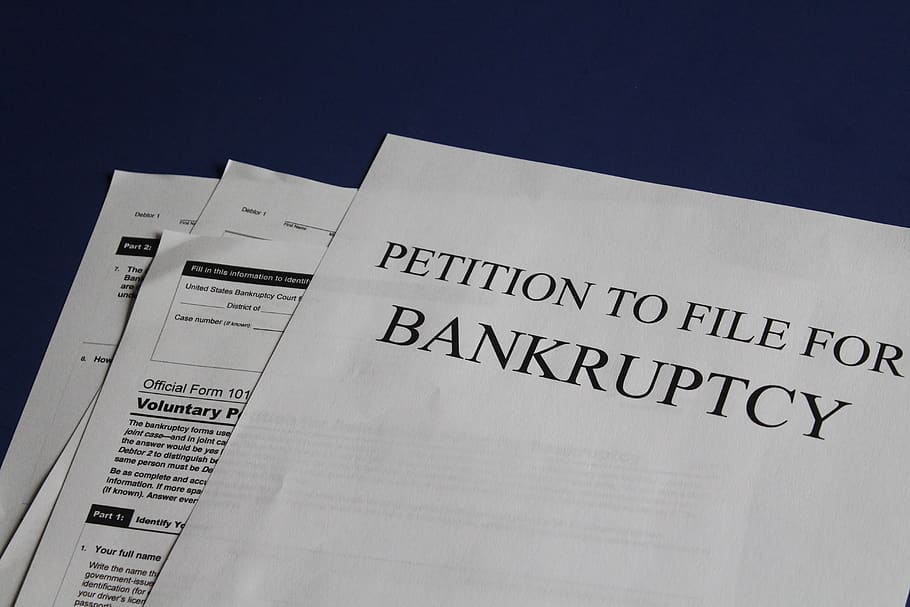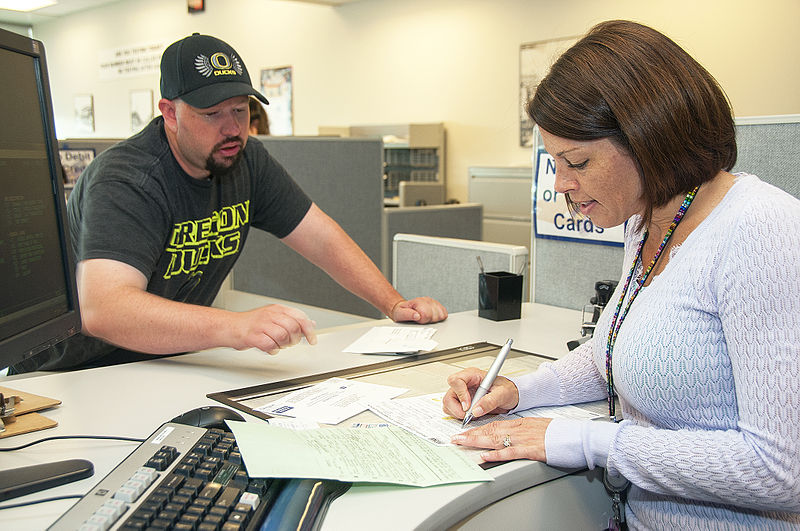
Popular culture often portrays bankruptcy as a disaster befalling someone who was foolish with their money or victimized by a bad actor. However, bankruptcy can help Americans find a way out of onerous debt and find relief from collections agents. The United States government guarantees bankruptcy protections and bankruptcy attorneys know how best to use bankruptcy laws and rules when protecting you and your household.
The bankruptcy process, however, can be intimidating for those without legal experience (that is, most of the public). The various forms and deadlines can easily confuse and befuddle someone simply seeking relief from catastrophic debt. A trustworthy bankruptcy attorney will gladly help guide you through the process, from when you first file to when you make your final debt payment on the other side. The bankruptcy specialists at Allen Stewart P.C. are here to make sure you make it through the bankruptcy process as swiftly as possible, regardless of your personal circumstances or what bankruptcy services you need.
Every bankruptcy case is unique because everyone’s financial situations are unique. How easy or difficult your bankruptcy case will depend on your personal and financial situation, as well as the debt types forcing you into bankruptcy. Despite the Affordable Care Act cutting medical-related bankruptcies by anywhere from 10 to 50%, medical debt still caused 66.5% of American bankruptcies as of 2019 according to the American Journal of Public Health. Other leading causes of bankruptcies include unaffordable mortgages or foreclosure, spending or living beyond one’s means, student loans and divorce. Many bankruptcy clients were people who worked hard but had the rug pulled from beneath them by layoffs, a sick relative or economic downturn. A competent bankruptcy attorney will work closely with you and determine the right tactic for your specific bankruptcy needs.
A bankruptcy attorney should assess your personal and financial situation and determine which bankruptcy you should file, most likely either Chapter 7 or Chapter 13 bankruptcy. A Chapter 7 bankruptcy is generally used for clients who, without significant assistance, don’t expect their financial situations to improve any time soon. Chapter 13 bankruptcy is usually used for higher-income clients who just need extra time to reorganize and pay off their debts; extra time their creditors won’t allot without a bankruptcy court stepping in. A quality bankruptcy attorney will study your financial situation, advise you which bankruptcy path works best for you, and will help you begin those proceedings.
Chapter 7 bankruptcy eliminates most unsecured debt, including credit card debt, medical bills and the like. Filing for Chapter 7 enacts an “automatic stay” keeping creditors from pursuing you over those bills. The court-appointed agent who oversees the bankruptcy called the “trustee” will sell nonexempt assets to pay those creditors what they demand. However, Texan debtors enjoy a wide range of exemptions on assets, including their home, retirement plan insurance, and up to $30,000 in personal property for a single person or $60,000 for a married person. If a debtor has no nonexempt assets, their creditors get nothing.
Thanks to the Texas homestead exemption, Texan debtors can keep their homes after filing for bankruptcy—if they own the home outright or keep paying their mortgage and tax payments on time. These homestead exemptions only extent to those who live in Texas for at least 40 months before claiming a homestead exemption in their bankruptcy filings.
Chapter 13 bankruptcies repackage a client’s debts into a single “bundle” on which the client makes a single monthly payment. These payments are made to the court-appointed trustee who distributes funds to the client’s various creditors. Home mortgages are not included in the bundle; the client must continue making those payments separately. Chapter 13 is generally reserved for clients at higher income levels who make enough to cover their debts but just need more time to do so. Texas bankruptcy law states Chapter 13 bankruptcy clients must have no more than $394,725 in unsecured debt, including credit cards bills or personal loans. They also can have no more than $1,184,200 in secured debts, including car loans and home mortgages. Filing a Chapter 13 petition stops foreclosure proceedings in progress, meaning you can keep your home.
Chapter 13 bankruptcies generally take longer than Chapter 7, which is something a trustworthy bankruptcy attorney should warn you about up front. While a Chapter 7 bankruptcy liquidates your debt, Chapter 13 consolidates your debt into a negotiated payment plan. The debtor and their attorney build a payment plan which is then approved by the court, which takes time. Completing the payment plan as devised takes time as well. Any bankruptcy attorney worth your time will explain all of this ahead of time, helping you know what to expect throughout the bankruptcy process and make the best decision for you and your family.
Your bankruptcy attorney will help you fill out and file the lengthy volumes of paperwork required in any bankruptcy case. They will request copies of your financial information including income, expenses, assets, bills and debts. With this information your attorney will prepare the required paperwork, go over it with you to ensure its accuracy, and file it on time to not miss required deadlines. Failing to promptly or accurately file this paperwork can cause delays in the process or even force the court to dismiss your bankruptcy case entirely.

Your bankruptcy attorney will also, once your paperwork is filed and proceedings begin, represent you in court at the requisite hearings. All debtors must attend the mandatory Meeting of Creditors, often referred to as the “341 meeting.” This meeting is held 30-45 days from the date the case was filed and is conducted by the court-appointed trustee. The trustee will verify your bankruptcy petition’s accuracy and will discuss with you and your attorney any issues. These meetings go by quickly but since courts usually hold several in one day, your attorney will likely recommend you take at least a half-day off from work so you can wait to be called. Your bankruptcy attorney will also represent you at Chapter 7 reaffirmation hearings, Chapter 13 confirmation hearings or any other hearings involving motions or objections filed by you, your creditors or the trustee.
Bankruptcy isn’t the financial apocalypse many make it out to be. It is a government protected method to get your head back above financial water, letting you restart and reorganize and try again.
Diligent repayment, maintaining low credit balances and not accruing additional debt during your bankruptcy will help you rebuild your credit and right your ship. Bankruptcy hits the pause button on your financial problems and gives you the time and breathing room needed to find solutions. A good, trustworthy bankruptcy attorney knows how to use bankruptcy laws and rules to help set you on the path back to good financial health.
The bankruptcy attorneys at Allen Stewart P.C. have years of experience helping clients just like you find the bankruptcy options that work best for them, whether that be Chapter 7 or Chapter 13 bankruptcies. Your initial consultation is free; the longer you wait, the fewer options you have, and recovery will only be more difficult. Contact us today.
